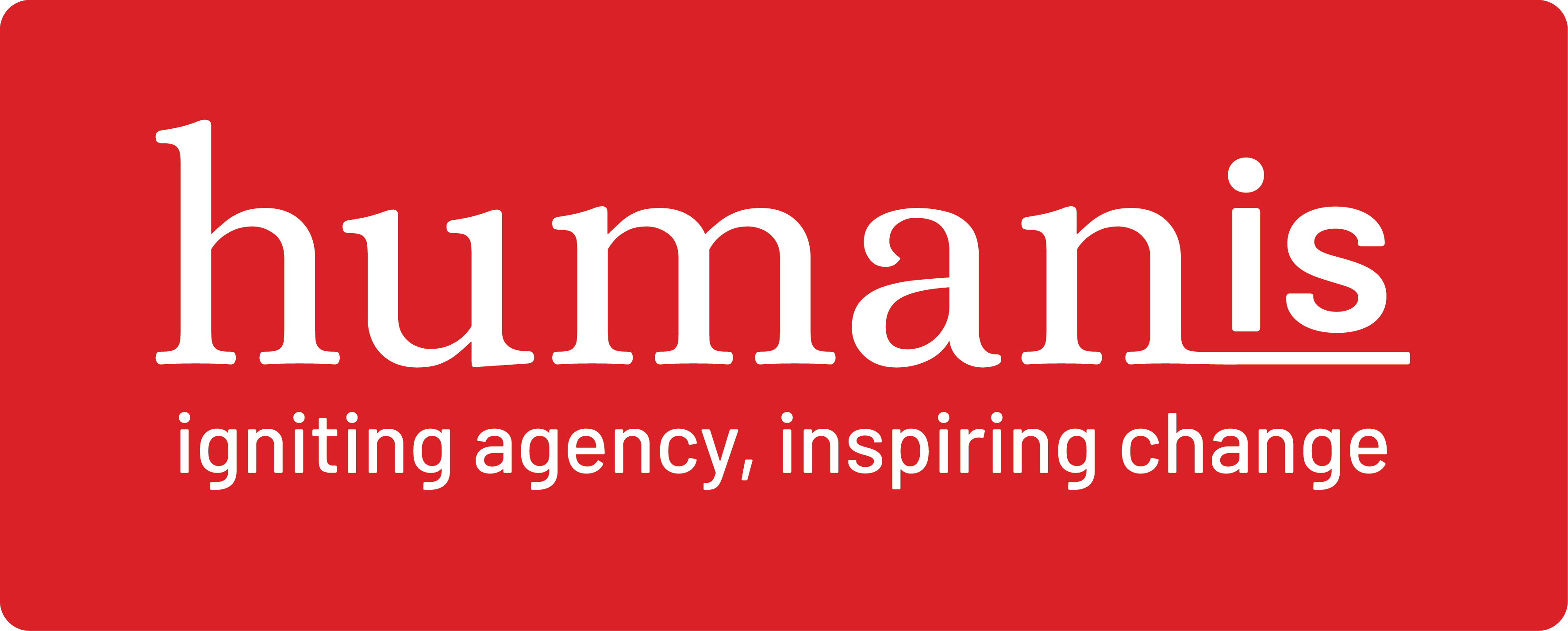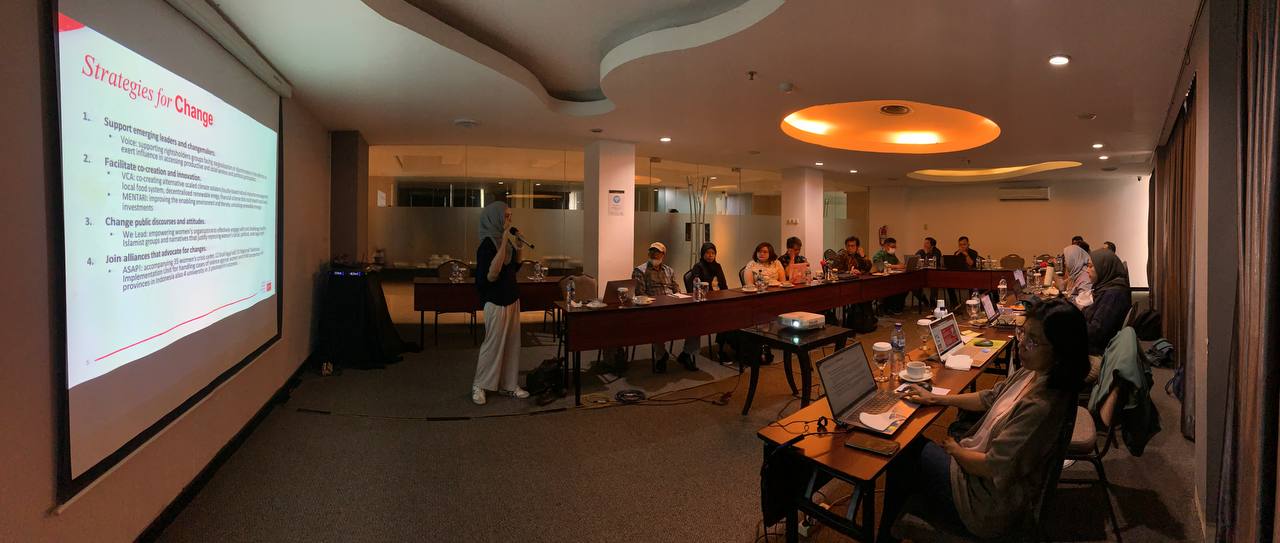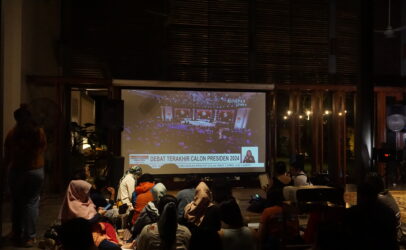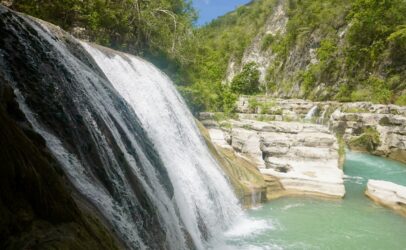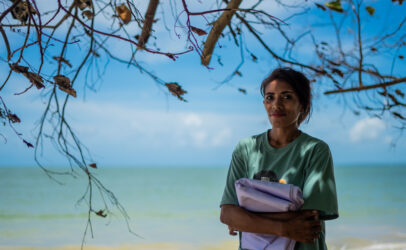Fisherfolk Empowerment for Climate Resilience and Sustainability in Central Java (FOCUS)
FOCUS’ desired change is to build the integrated coastal management for a sustainable food system for the fisherfolks community including women in Central Java. FOCUS will strive to achieve stronger participation of coastal populations in target areas in Central Java in decision-making on coastal resource planning, provide advocacy to promote a more sustainable balance between the use and conservation of marine resources, and activities to improve local value-chains at local level.
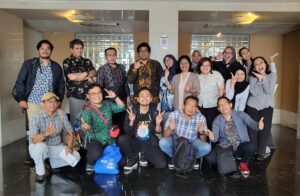
Why FOCUS?
Indonesian ecosystems provide important contributions to the global climate. The country has seen severe impacts of climate crisis over the past two decades, with impacts on water availability, disaster risk management, urban development, particularly in the coastal zones, and health and nutrition, with implications for poverty and inequality. Due to the length of the coastline and a large number of islands, some of which are densely populated, Indonesia is highly vulnerable to climate crisis impacts, including extreme events such as floods and droughts, and long-term changes from sea level rise, shifts in rainfall patterns and increasing temperature. The country is particularly vulnerable to sea-level rise and the country is ranked 5th highest in the world in terms of the size of the population inhabiting lower elevation coastal zones. Coastal areas also facing severe impacts of overfishing leading to reduced income opportunities, pollution of coastal areas with plastic and other waste, impacting the quality of the ocean waters and the income of fisherfolk but also those segments of the coastal population that is engaged in providing recreation and eco-tourism services in coastal areas.
Indonesia holds 23% of the world’s mangroves (3.5 million hectares) and it’s the most diverse with 92 true mangrove species, which Indonesia mangrove can store 3.1 billion tons of carbon, however, annually Indonesia suffered from mangrove loss caused by conversion into aquaculture ponds, palm oil plantation and coastal development for urban expansion1.
Stunting is also a major issue in Indonesia, where children below five years old lack of nutrition, the numbers of children stunting are over 8 million children (Ministry of Health, 2018), this shows one in four children are stunted. The issue of stunting is majorly caused by limited knowledge and access to nutritious food by pregnant women and toddlers, lack of access to clean water and sanitation, as well as limited access to health services, especially from vulnerable families, which majority the vulnerable families coming from small farmers, blue-collar and small fisherman communities. This issue rose significantly in coastal areas.
In bullet points, we have identified several key problems that is urgent to be addressed, they are:
- Lack of resiliency in coastal zones as lack of intersectoral coordination for local stakeholders
- Lack of adaptive community management of disaster risks and impacts of climate crisis in coastal areas by stakeholders
- Ocean Economy: Unsustainable and un-inclusive livelihoods opportunities for coastal communities are promoted, particularly among women and youth
How
FOCUS will cooperate with local governments, community groups and other relevant stakeholders to raise awareness of nutritional issues, coastal management and climate resilience of coastal communities. Advocacy, awareness raising and capacity development will be provided in cooperation with local authorities and other stakeholders to implement the activities under four outcomes:
- Inter-sectoral coordination platform produced policy recommendation/draft of policies/other legal documents on integrated coastal management for a sustainable food system
- Local stakeholders apply improved/adaptive sustainable fisheries and coastal management to mitigate disaster risk & impact of climate crisis
- Sustainable and inclusive livelihoods opportunities for coastal communities are promoted, particularly among women and the youth
- Public increased their understanding and engagement on sustainable management of marine and coastal assets (fisheries, mangroves, reefs) and climate crisis
Locations
One city and four districts in Central Java Province in Indonesia, i.e.: Semarang, Jepara, Demak, Batang and Kendal.
Central Java Province is located in the center of Java Island with its administrative capital Semarang. Central Java is a coastal province and has a total area of 32,800.69 km², with a population of 36,516,035 during the 2020 population census, making it the third-most populous province in Indonesia and in Java, after West Java and East Java. The environmental problems in Central Java include damage to mangrove forests, sea-level rise causing coral reef damage, unsustainable seaweed production. Additional problems are foreseen stemming from a major toll road, which is being constructed under the direction of the Ministry of Public Works and planned to be completed by 2021. With regard to impacts on mangroves, damage to mangroves is caused by anthropogenic activities, especially clearing mangroves by cutting. Many mangrove trees are cut to be used to produce charcoal, animal feed, and those new areas are then opened for aquaculture ponds.
Period and Budget
December 2022 – December 2026
Norwegian Krone 24,343,515
Planned Activities
Hivos and partners will pay due attention to the role of women and put in place mechanisms to achieve even gender balance in all FOCUS activities. The elements of our proposed intervention approach are as follows:
- Lobby and advocacy: through all outcomes with key stakeholders including local and national government, communities, CBOs and CSOs
- Capacity building: knowledge and skills transfers through various trainings, workshops focusing on several subjects including on integrated coastal management, disaster risk reduction and disaster risk management, economy, nutrition
- Collective campaigns: to reach bigger target groups and ensure the message FOCUS delivered and understood not only by the direct stakeholders but also indirect ones. To also amplify the voices of fisherfolks who are struggling in the mists of climate impact and development including showcasing best practices of existing locally coastal-based climate solutions
- Monitoring and Evaluation: to ensure the project is implemented against the indicators set on the baseline and to ensure every challenged in the project solved and mitigate the risk
- Institutional approach: development of the institutionalized concrete platform to synergize all the stakeholders and as a sustainable exit strategy
- Coordination of partnership: Hivos will lead the consortium with goals to ensure safe working environment during implementation and reaching the objectives
During the implementation of FOCUS, Hivos and partners will continuously identify, assess, and mitigate relevant risks that potentially arise or associated with the project, especially risks which fall under the following four cross-cutting issues:
- Anti-corruption
- Climate and environment
- Women’s rights and gender equality
- Human rights (participation, accountability and non-discrimination)
Partners
- KIARA (Koalisi Rakyat untuk Kealidan Perikanan) is well-known across Indonesia for providing valuable assistance to communities. KIARA carries out campaigns in following key areas: Policy Reform, IUU Fishing, Coastal Management, Farms & Mangroves. KIARA will work closely with WALHI in conducting campaigns for raise the awareness of local coastal communities to conserve and protect their environment. KIARA will also provide support to the Project’s capacity development activities and support activities to improve or identify alternative livelihoods for the people.
- WALHI, also known as ‘The Indonesian Forum for Environment’, is a nation-wide NGO that has been involved in environmental conservation for over 30 years. WALHI has ample relevant experience in community-based ecosystem conservation and campaigns, disaster risk reduction measures with communities, capacity building, advocacy with national, provincial and district authorities as well as specialized fields to support communities in gaining better credit and market access.
- The ‘Center for Coastal and Marine Resources Studies’ (PKSPL-IPB) of the renowned ‘Bogor Agricultural University’. PKSPL IPB is the prime research institution in the field of coastal and ocean development in Indonesia, which organise research and training programs in assistance of the Government and other relevant parties in sustainable management of coastal and marine resources in Indonesia. PKSPL-IPB has implemented countless studies and projects related to Integrated Ocean Management, Integrated Coastal Management as well as undertaken numerous baseline surveys and M&E activities in Indonesia, including in in Central Java. The Center has been implementing community-based conservation activities, including training in the two selected provinces, specifically in Semarang city, Demak and Jepara regencies.
Donor
The Norwegian Agency for Development Cooperation (NORAD)
Norad – the Norwegian Agency for Development Cooperation – is a professional body under the Ministry of Foreign Affairs (MFA). In matters concerning Norway’s climate and forestry initiative, Norad is a subordinate of the Ministry of Climate and Environment (KLD). Our work is founded on instructions and allocation letters from the Norwegian ministries. Norad is based in Oslo. Together with our partners and on behalf of Norway, Norad strives for a greener future in a world without poverty. Human rights must be respected and none left out. By way of knowledge and cooperation, we ensure that the funds of Norwegian development aid contribute to global development. Together we move the world.
